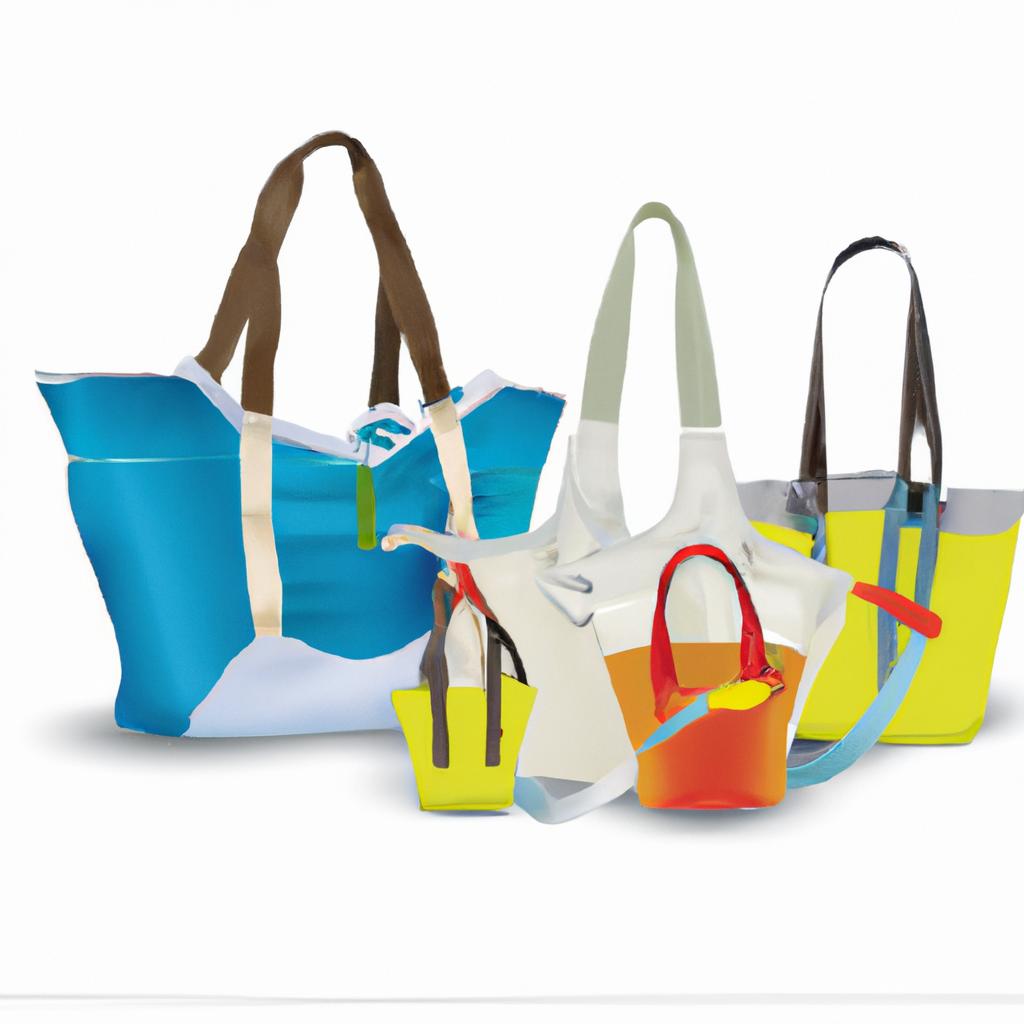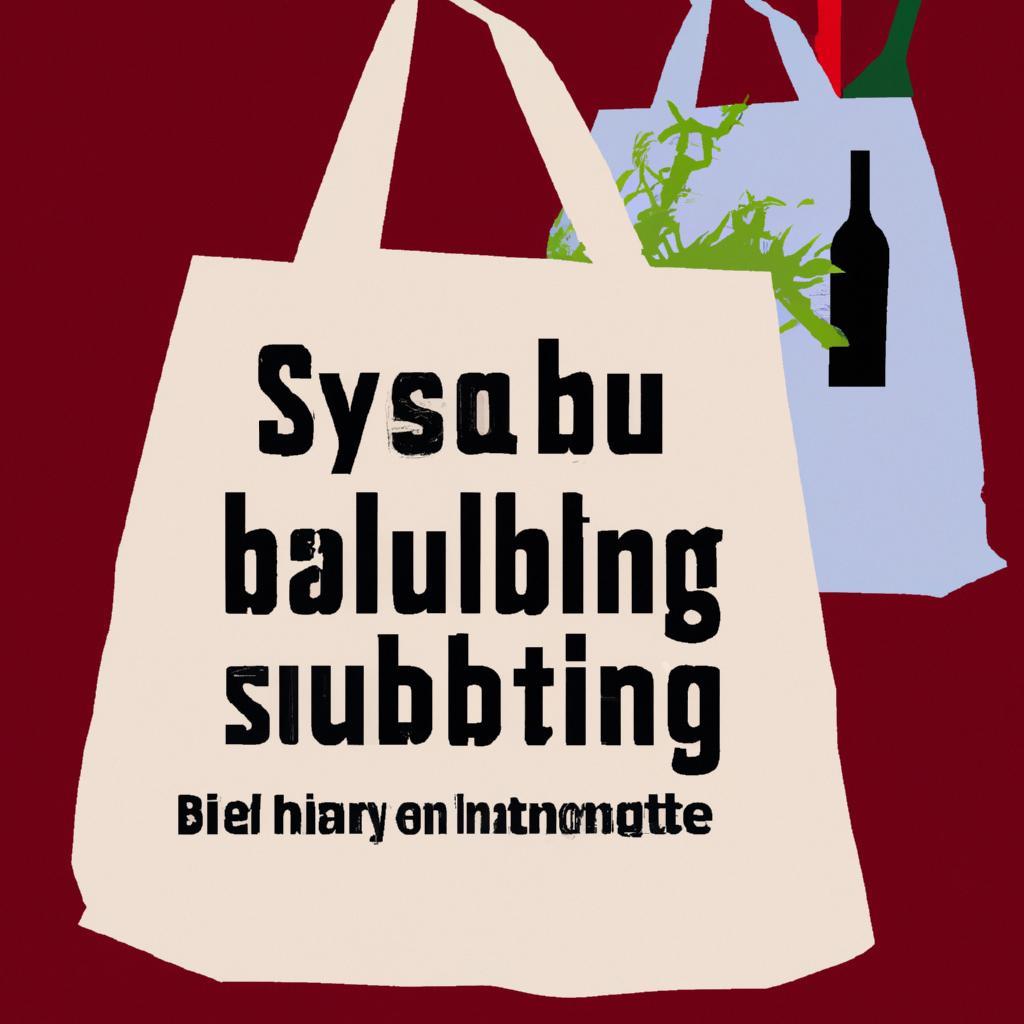In a world increasingly aware of its ecological footprint, the concept of sustainability is evolving from a mere trend to a necessary lifestyle. As environmental consciousness permeates our everyday choices, one simple act is fostering a global shift: the transition to BYOB—Bringing Your Own Bag. This movement represents more than just a response to plastic pollution; it symbolizes a commitment to reducing waste, conserving resources, and rethinking consumption patterns. As cities and countries implement policies to curb the use of single-use plastics, individuals are being called to take initiative, embracing the power of mindful purchasing. In this article, we will explore the rise of the BYOB phenomenon, examine its impact on our environment, and consider how each of us can participate in this vital journey toward a sustainable future.
Embracing the Shift Towards a Sustainable Future
As we pivot towards a more sustainable lifestyle, the adoption of **Bring Your Own Bag** (BYOB) stands as a pivotal movement in our collective journey. This simple yet impactful practice not only reduces the reliance on single-use plastic bags but also encourages mindful consumption. By carrying reusable bags, individuals can champion a greater cause while simultaneously cultivating a personal habit that reflects their commitment to the environment. The adoption of BYOB is not merely a trend; it is a conscious choice that has the potential to influence a cultural shift towards lasting environmental responsibility.
Transitioning to a sustainable future invites us to rethink our daily habits. Some environment-friendly practices include:
- Choosing natural materials: Opt for cloth or jute bags over plastic.
- Supporting local businesses: Aids in reducing the carbon footprint.
- Participating in community initiatives: Engaging others in the BYOB movement fosters a larger awareness.
Every reusable bag that replaces a plastic one contributes to a cumulative impact, showcasing our united effort in combating pollution. To visualize this change, consider the chart below, depicting the reduction in plastic usage as more people adopt BYOB.
| Year | Plastic Bags Used (in millions) | Reusable Bags Adopted (in millions) |
|---|---|---|
| 2020 | 1000 | 50 |
| 2021 | 800 | 100 |
| 2022 | 600 | 200 |
| 2023 | 400 | 300 |

The Benefits of Bringing Your Own Bag for People and Planet
Opting for your own bag not only elevates your shopping experience but also significantly reduces waste and environmental degradation. By steering clear of single-use plastic bags, individuals can save countless marine creatures and wildlife from the threat of pollution. **Bringing your own bag helps to minimize resource consumption**, as fewer plastic bags need to be manufactured, transported, and disposed of. This simple act contributes to a more sustainable lifestyle, promoting a culture of environmental responsibility and conscious consumerism. In a world where over a trillion plastic bags are used every year, your choice to bring your own can make a profound impact.
Additionally, the benefits extend beyond environmental conservation. **Using reusable bags can also lead to economic savings**. Many retailers encourage BYOB policies by offering discounts or incentives for customers who arrive with their bags, effectively lowering the overall cost of shopping. Furthermore, the appeal of stylish, personalized bags can enhance your shopping experience, allowing you to express individuality while making a positive choice. The table below highlights some key benefits of adopting this sustainable practice:
| Benefits | People | Planet |
|---|---|---|
| Cost Savings | Discounts from retailers | Reduced manufacturing costs |
| Waste Reduction | Cleaner communities | Decreased landfill volumes |
| Awareness | Encourages mindful consumerism | Promotes sustainability education |

Practical Tips for Seamless BYOB Adoption in Daily Life
One of the most effective ways to ensure smooth BYOB integration is to establish a designated spot in your home, whether it’s a hook near the door or a basket in the kitchen, where you can keep your reusable bags. This small organizational tweak makes a significant difference in your day-to-day routine. When you consistently leave your house equipped with your bags, it becomes second nature. Consider dedicating an entire bag for specific purposes (such as groceries, clothing, or specific items you might need for errands) to further simplify your preparation.
On the go, it’s essential to “think ahead”. Before heading out, plan your trips according to what you’ll be buying and pack accordingly. Additionally, keep a set of foldable, lightweight reusable bags tucked into your everyday carry—all achievable through multi-use bags that can be easily stowed away. This not only minimizes the chances of forgetting your bags but also aligns with the sustainability principle of reducing waste. Create a mental checklist or a digital reminder on your phone for added reinforcement:
- Check Your Bags: Are they clean and ready to go?
- Pack Strategically: Have you packed them for your trip?
- Remember them: Light a reminder an hour before you leave.
To Conclude
As we reflect on the journey towards a more sustainable future, it becomes clear that the simple act of bringing your own bag transcends mere convenience. It symbolizes a collective commitment to our planet, a tangible step each of us can take to combat the environmental challenges we face. The rise of the BYOB movement is not just a trend; it’s a call to action, inviting us all to participate in a global shift towards mindful consumption and conscientious living.
In every reusable bag, there lies the potential for change—each fabric weave telling a story of our efforts to reduce waste, protect ecosystems, and prioritize the health of our communities. As consumers, every decision we make reverberates through the intricate web of our shared environment. By embracing sustainability and making small yet impactful choices, we can illuminate a path toward a greener, more resilient world.
So, the next time you head out, carry your reusable bag with pride. Remember, it’s not just a bag; it’s a symbol of your commitment to a healthier planet. Together, let’s turn this movement into a lifestyle, ensuring that future generations will inherit a world where nature thrives and sustainability is the norm. It starts with us—one bag at a time.
